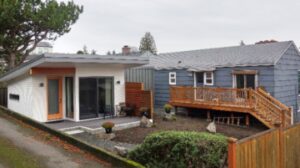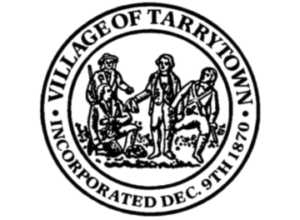
If you like your town meetings long and contentious, then you would have loved Tarrytown’s 3+ hour session on Wednesday, February 8th debating a revised Tarrytown law that permits “Accessory Dwelling Units” (ADUs) in the village. The village board was there to vote on a pilot program that would allow for up to 10 new ADUs in the course of 1 year. After that period, the community will evaluate the impact on the nearly 12,000 residents living in this 5.6 square mile village on the Hudson.
So what’s the deal with ADUs? Why are some in Tarrytown excited to see this pilot get filed into law while other residents have concerns when it comes to changes in zoning codes? These dwelling units can be free standing or attached to the primary residence (like Arthur Fonzarelli’s bachelor pad above the Cunnigham’s garage). They can serve as apartments to renters (again, like the Fonz) and can also be used for in-laws, au pairs or guests. The key factor is they create another livable space on an existing property that was most likely originally zoned for a one-family dwelling. The idea of increasing population density has been a hot topic of late, so the town board meeting at Tarrytown Village Hall on February 8th drew an unusually large crowd.
Changes to traffic, parking, safety, water pressure, privacy, and higher taxes caused by the need for more town services to accommodate growth were among the factors that the opposition cited to build a case against the pilot. There was also concern over the fact that seniors were one of the groups mentioned as potential beneficiaries of the program as they would have opportunities to generate income through rentals, yet this meeting was scheduled on a Wednesday evening when many seniors might not be inclined to attend.
The ADU pilot program is part of a larger movement in the state of New York and a handful of other states. After getting bipartisan pushback last year, Governor Hochul pulled her proposal that would have allowed ADUs on owner-occupied, residentially-zoned lots as a means of creating additional housing. As far as the Tarrytown pilot is concerned, key points of opposition at the meeting were that there should be no rush to get this initiative off the ground without proper research and input from the community and there was no reason to vote without first having significant public deliberation.
 Before the meeting, in letters to the editor of this publication, we heard from Judy Herguth, a member of Concerned Residents of Tarrytown who felt it was the duty of the Village Board to be forthcoming with their explanations of why this pilot is on the table. She called for a village wide survey to get a true measure of the sentiment towards ADUs. She voiced concerns that not enough residents know about this pilot and that it runs counter to the thoroughly outlined Tarrytown Comprehensive Plan that was updated in 2018. Another letter, from Haydee McCarthy, outlined 4 key points to demonstrate why some in Tarrytown feel the board’s lack of transparency is eroding trust in their process and intentions. She urged the board to change course and work towards building back the credibility and confidence she felt they were losing by, in her opinion, failing to sufficiently explain why this pilot makes sense for the village at this moment in time.
Before the meeting, in letters to the editor of this publication, we heard from Judy Herguth, a member of Concerned Residents of Tarrytown who felt it was the duty of the Village Board to be forthcoming with their explanations of why this pilot is on the table. She called for a village wide survey to get a true measure of the sentiment towards ADUs. She voiced concerns that not enough residents know about this pilot and that it runs counter to the thoroughly outlined Tarrytown Comprehensive Plan that was updated in 2018. Another letter, from Haydee McCarthy, outlined 4 key points to demonstrate why some in Tarrytown feel the board’s lack of transparency is eroding trust in their process and intentions. She urged the board to change course and work towards building back the credibility and confidence she felt they were losing by, in her opinion, failing to sufficiently explain why this pilot makes sense for the village at this moment in time.
At the meeting, those in favor of the pilot touted the program as an effective way to create affordable housing in the village, to provide empty nest seniors a means of alleviating their high costs of living and to give homeowners the freedom to do what they want with their properties. In a memo from the Village Planning Board to the Village Board of Trustees sent on December 20, 2022, the planning board noted that, “the ADU legislation provides the ability for property owners to have another potential stream of income that can be used for other needs (like education or health-care needs) or for property improvements (like painting and repairs), which will be a benefit to the character of the neighborhood.” They also recommended tracking ADU permits so, “the Village Board can reassess the proposed law after 1 year, 3 years and 5 years.”
The pilot legislation was passed by the Board of Trustees at the meeting and will be officially enacted upon the state’s confirmation that the local law has been filed (a process that typically takes about 30 days). In 1 years’ time, Tarrytown will have a better idea of how the program truly impacts the community. As of this writing, no one has applied for the pilot, so both sides will have to wait and see who participates and how they decide to put their new ADUs to work for them. While those in the opposition may be unhappy with the decision, they will have this year to rebuild their argument and evaluate how it stacks up with the results of the pilot. Within that period, both sides have an opportunity to continue meaningful discussion around this issue to reach a better understanding of what the other hopes to achieve and to find a mutually beneficial solution.
Steve Pavlopoulos is a freelance writer and producer living in Cortlandt Manor.






